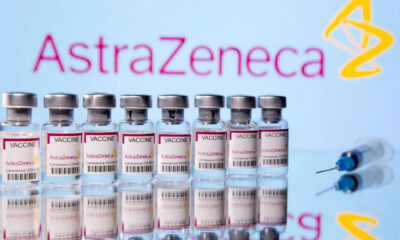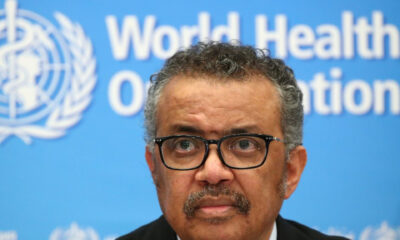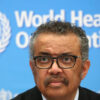Barely one week to 2021 Tokyo Olympic Game, a Nigerian delegate to the Olympics has become the first visitor to be admitted to hospital with COVID-19, broadcaster TV Asahi said on Friday.
The individual, a non-athlete in their 60s, tested positive on Thursday evening at the airport with mild symptoms but was hospitalized because of age and pre-existing conditions, the broadcaster said, without giving details.
As Japan battles to stem rising local infections a week before the event, the Australian Olympic Committee said that tennis player Alex de Minaur, ranked 15th in the world, had tested positive before his departure for the Games, becoming the latest athlete to have the virus shatter his Olympics dream.
“We’re very disappointed for Alex,” Australia’s chef de mission, Ian Chesterman, told reporters.
“He said that he’s shattered, not being able to come … but he has sent his very best wishes for the rest of the team.”
De Minaur returned two positive tests in Spain before he was due to fly to Japan, David Hughes, the AOC’s chief medical officer, told a news conference.
Another Olympic dream crushed was that of U.S. basketball star Bradley Beal, after USA Basketball said on Thursday the Washington Wizards star would miss the Games after entering coronavirus protocols at a training camp in Las Vegas.
The coronavirus has infected several athletes and others involved with the Games, which start on July 23, even as infections spread in Tokyo and experts warn worse may lie ahead.
On Friday, top government spokesman Katsunobu Kato, told a news conference that a Ugandan athlete had gone missing, with police and the team’s host city in western Japan mounting a search.
Public broadcaster NHK said the athlete was a weightlifter, whose absence from a PCR test had been spotted by an official of the host city, Izumisano, in Osaka prefecture. Although a state of emergency has been clamped on Tokyo for the pandemic, most measures to limit its spread are voluntary and many say they have grown weary of them.
Organizers have promised that the Games, postponed from last year because of the pandemic, will be “safe and secure”.
They have imposed strict testing and limits on delegates’ activities to try to soothe the concern of the Japanese public, many of whom wanted the Games canceled or postponed again.
International Olympic Committee President Thomas Bach said on Thursday there was “zero” risk of Games participants infecting Japanese with COVID-19, as infections hit a six-month high in the host city.
Read More: Everything You Need To Know On Tokyo Opening Cermonyhttps://agnesisika.com/olympic-everything-you-need-to-know-on-tokyo-opening-ceremony/
However, a Japanese Olympic gold medalist turned chief of the Japan Sports Agency, Koji Murofushi, told Reuters on Friday that organizers needed flexibility and swift decision-making in reacting to the spread.
“It’s possible that even after the Olympics start, there will be situations where we’ll need to add measures to prevent the spread of infections – and if that’s the case, we have to be flexible enough to act swiftly,” said Murofushi, 46, a gold and bronze medalist in the hammer throw.
Most venues are to have no spectators, with officials urging the public to stay home and watch on television, depriving Japan of its hopes of pomp and spectacle at the Games.
Bach had suggested to Prime Minister Yoshihide Suga that if the virus situation improved spectators could be let into stadiums, media said.
Asked about the report, Tokyo Governor Yuriko Koike told reporters that while many hoped children at least could see the Games in person, it would depend on the trend in infections.
Tokyo has recorded 834,425 cases of positive coronavirus, 793,643 recovered, and 14,974 deaths.
































